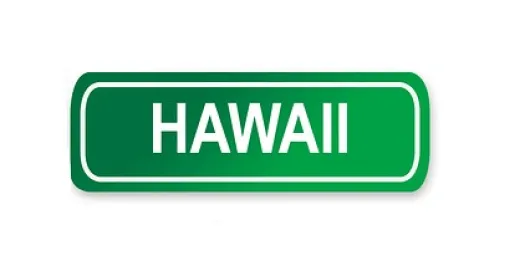Denying a high school athletic association’s motion to dismiss a complaint alleging violations of Title IX of the Education Amendments of 1972, a federal district court has held, “the Plaintiffs have provided sufficient factual matter to plausibly allege that the [Oahu Interscholastic Association] may be subject to the anti-discrimination provisions of Title IX under a ‘controlling authority’ theory.”
In A.B. v. Hawaii State Department of Education, athletes on the female high school water polo and swim team filed a class action lawsuit against Oahu Interscholastic Association (“OIA”) and the Hawaii State Department of Education (“DOE”) alleging violations of Title IX. In their three-count complaint, the plaintiffs claim the defendants violated Title IX based on:
1. their failure to take remedial actions to meet the anti-discrimination provisions under Title IX, and their continued unequal treatment of female athletes;
2. their failure to provide female athletes with equivalent athletic participation opportunities; and
3. the DOE’s retaliation against the plaintiffs for their attempts to report or discuss the DOE’s practice of sex discrimination.
The DOE is a state administrative agency managing 292 schools in Hawai’i, including the plaintiffs’ school, James Campbell High School (“Campbell”). The OIA is an unincorporated athletic association consisting of the DOE’s secondary schools in Oahu, which includes Campbell. The plaintiffs alleged that the DOE receives federal financial assistance and, therefore is subject to Title IX’s anti-discrimination provisions. Since the OIA’s Executive Director is a DOE employee and all five members of the OIA Executive Council are principals of DOE high schools, the plaintiffs contended that “the OIA is an instrumentality of, and is controlled by the DOE, and that they are pervasively entwined.” Based on these connections, the plaintiffs alleged the OIA also receives federal financial assistance and is subject to the provisions of Title IX.
According to the plaintiffs’ complaint, female athletes at Campbell are treated worse, receive fewer benefits and fewer opportunities than male athletes, and the OIA’s policies and practices control or influence this disparate treatment immensely. The plaintiffs claimed their allegations are evidenced by OIA’s competitive facilities, scheduling of games, travel opportunities, and publicity and promotion of athletic teams. They also claimed that the DOE failed to provide its female athletes with athletic locker rooms, practice and competitive facilities, equipment and supplies, availability and quality of coaching, medical and training services and facilities, and publicity and promotion.
Further, the plaintiffs alleged that the DOE and the OIA consistently give better opportunities to boys’ athletic programs when determining facility use and scheduling, including allocating a majority of available Friday night spots to boys’ programs. In addition, they claimed the male athletes received better travel and publicity opportunities (for example, they were sent off the island for athletic competitions).
The OIA filed a motion to dismiss the complaint pursuant to Federal Rule of Civil Procedure 12(b)(6), claiming it did not allege that the OIA receives federal funds as required under Title IX. The plaintiffs argued that the facts are sufficient in the complaint to support their theory that OIA indirectly receives federal funds and that the OIA is subject to Title IX because it is the controlling authority over the federally funded program.
Under Title IX, “[n]o person in the United States shall, on the basis of sex, be excluded from participation in, be denied the benefits of, or be subjected to discrimination under any education program or activity receiving Federal financial assistance.” 20 U.S.C. § 1681. Therefore, to be subject to Title IX liability, an entity must be a “program or activity” as defined by Title IX and receive “Federal financial assistance.”
Title IX broadly defines “program or activity.” The definition encompasses the operations of: a “department, agency, special purpose district, or other instrumentality of a State or of a local government”; a local educational agency; an “entire corporation, partnership, or other private organization, or an entire sole proprietorship”; and any other entity that is established by two or more of the foregoing entities. 20 U.S.C. § 1687.
The OIA argued that, because the plaintiffs’ complaint did “not allege that any federal funds were earmarked for the purpose of the OIA,” it was not liable under Title IX and was entitled to be granted its motion to dismiss.
The district court said that the plaintiffs’ complaint provided the following: the DOE “receives federal financial assistance and is subject to the anti-discrimination provisions of Title IX; that the OIA has controlling authority over the DOE’s interscholastic athletic programs, including competitive facilities; scheduling of seasons, games, and tournaments; travel; publicity and promotion; and budget that the OIA indirectly receives federal financial assistance; that the OIA acts under the control of and in close coordination with the DOE and makes decisions concerning interscholastic athletics at Campbell; and finally, that the Executive Director of the OIA is a DOE employee, and all five regular members of the OIA’s Executive Council are principals of DOE high schools and therefore also DOE employees.”
Accepting the plaintiffs’ allegations as true, as required when dismissal is sought based on Fed. R. Civ. P. 12(b)(6), the court concluded the plaintiffs had stated sufficient allegations to support a claim that the OIA is an indirect recipient of federal funds and subject to Title IX.




 />i
/>i

